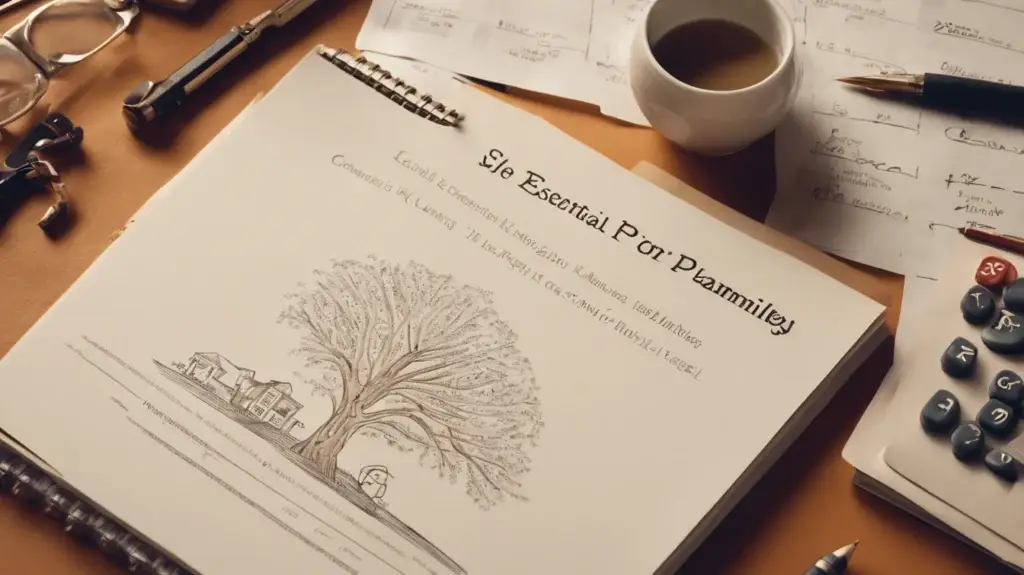6 Essential Estate Planning Steps For You And Your Parents in New York
Estate planning is one of the most important tasks you and your parents can undertake to ensure your family’s assets are protected and properly distributed when needed. Whether you’re planning for the future or dealing with the complexities of your parents’ estate, understanding the process under New York State law is crucial. Without a comprehensive estate plan, both you and your family may face legal challenges, unnecessary taxes, and uncertainty. Here are six essential steps for estate planning that you and your parents should consider.
1. Create a Last Will and Testament
One of the most fundamental components of estate planning is drafting a Last Will and Testament. This legal document outlines how your or your parents’ assets should be distributed after death. In New York, if a person dies without a will (known as “intestate”), the state’s laws determine how assets are distributed. Typically, this means assets are divided among surviving family members, but the absence of a will can lead to conflicts, delays in probate, and unintended asset distribution.
Why a Will is Critical
A properly drafted will ensures that the decedent’s wishes are followed. It also allows for the designation of an executor—someone trusted to manage the probate process and distribute assets accordingly. Without a will, the court appoints an administrator, who may not reflect the family’s or decedent’s desires.
2. Establish Power of Attorney
A power of attorney (POA) is a legal document that allows a designated person (agent) to make financial and legal decisions on behalf of the principal (the individual granting the POA) if they become incapacitated. In New York, a POA can be durable (remaining in effect even if the principal becomes incapacitated) or nondurable (ending if the principal becomes incapacitated).
Why It’s Important
Without a power of attorney, if you or your parents become incapacitated, no one can legally handle important financial matters such as paying bills, managing assets, or selling property without a lengthy and costly court process to appoint a guardian. A POA is an essential part of protecting your estate while alive but unable to manage your affairs.
3. Set Up a Health Care Proxy and Living Will
In addition to managing financial affairs, it’s essential to have a health care proxy and living will in place. A health care proxy designates someone to make medical decisions on your behalf if you become unable to do so, while a living will provides specific instructions about your medical preferences, including end-of-life care.
The Importance of Medical Directives
Without these documents, your family may face difficult decisions in moments of crisis without clear guidance. In New York, these medical directives are vital for ensuring that your wishes are honored and preventing family disputes over health care choices.
4. Establish a Revocable Living Trust
A revocable living trust is an estate planning tool that allows you to manage assets during your lifetime and specify how they will be distributed after death. Unlike a will, a trust does not go through probate, which can simplify the transfer of assets and protect privacy.
Benefits of a Revocable Trust
In New York, setting up a revocable trust can help avoid the costly and time-consuming probate process. Trusts also provide flexibility, allowing you to make changes or revoke the trust during your lifetime. For parents, this is an excellent way to ensure their estate is managed smoothly and without court interference.
5. Review Beneficiary Designations
For assets such as life insurance policies, retirement accounts (such as IRAs and 401(k)s), and payable-on-death accounts, beneficiaries are often designated directly on the account forms. These designations supersede what is written in a will, so it’s important to review them regularly, particularly after major life events like marriage, divorce, or the birth of a child.
Why You Should Update Beneficiary Designations
Many families neglect this step, leading to outdated beneficiary designations that may result in unintended asset distribution. For example, an ex-spouse could remain the beneficiary of a life insurance policy if the designation isn’t updated following a divorce.
6. Plan for Long-Term Care
With rising healthcare costs, planning for long-term care is essential, especially for aging parents. In New York, long-term care can be expensive, and without proper planning, it can quickly deplete your or your parents’ assets. Consider options like long-term care insurance or Medicaid planning to protect assets and ensure adequate care.
Medicaid Planning in New York
New York has specific rules regarding Medicaid eligibility. Often, people try to transfer assets to family members to qualify for Medicaid, but the state has a five-year look-back period for asset transfers. Working with an estate planning attorney to create an asset protection strategy can help ensure that your family qualifies for benefits without sacrificing their assets.
Conclusion
Effective estate planning is essential for ensuring that your and your parents’ assets are protected, and that their final wishes are carried out according to New York State law. The process requires a combination of legal tools like wills, trusts, powers of attorney, and healthcare proxies. Regularly updating these documents is critical to avoid unintended consequences. At Morgan Legal Group, we specialize in guiding families through the estate planning process, offering personalized solutions that address the unique needs of each client. Don’t wait until it’s too late—plan ahead and secure peace of mind for yourself and your loved ones.









